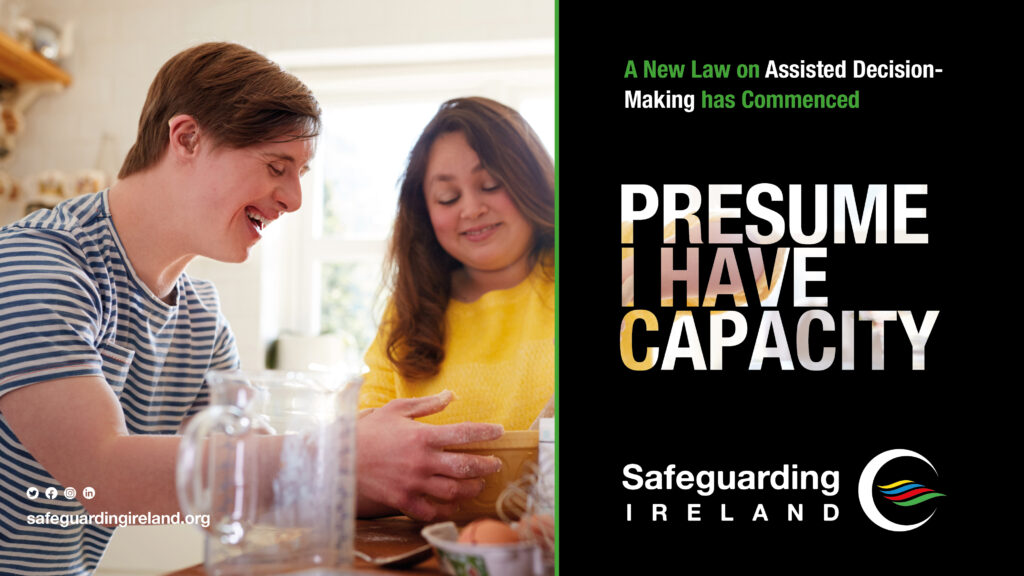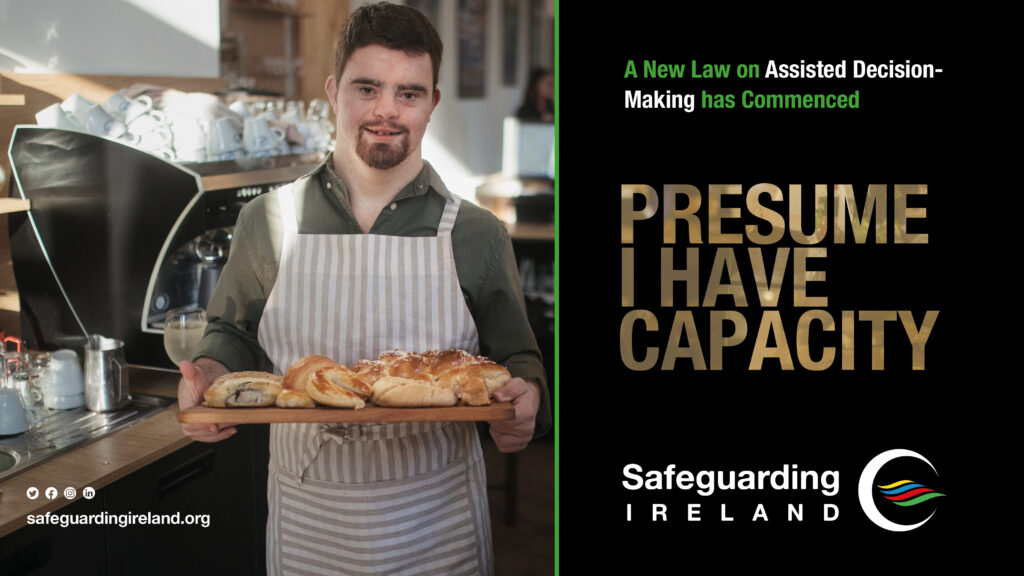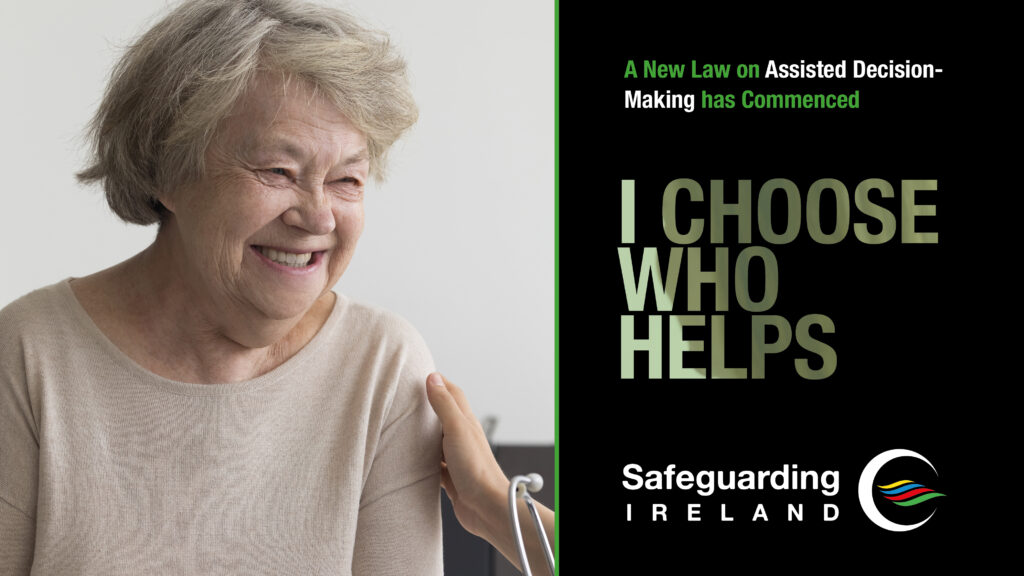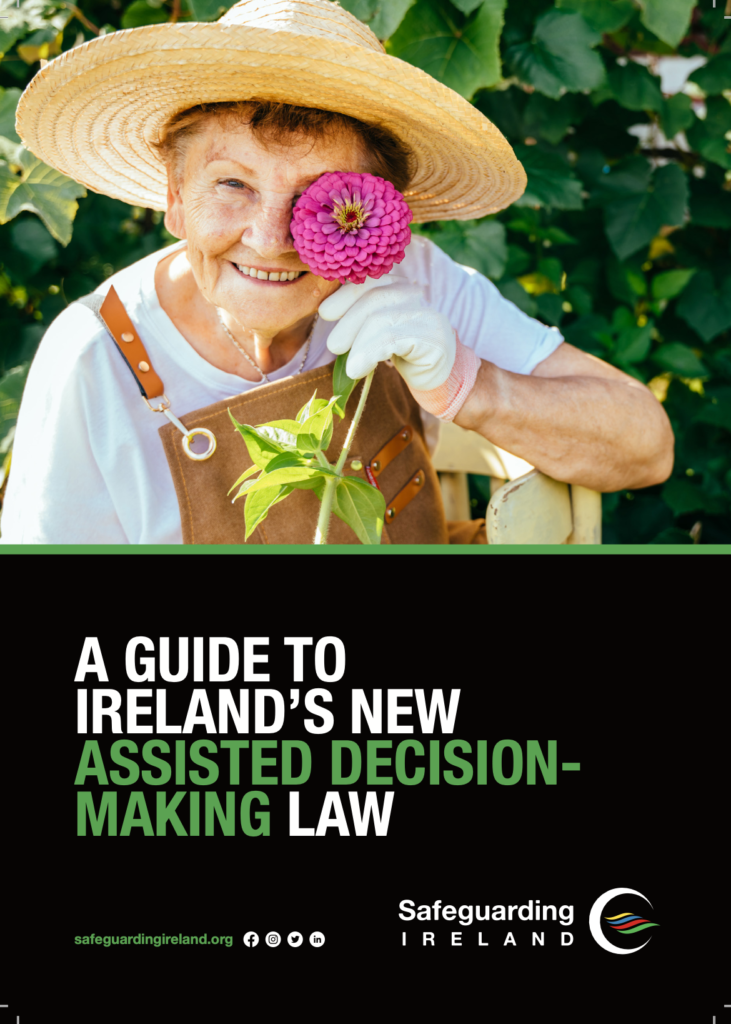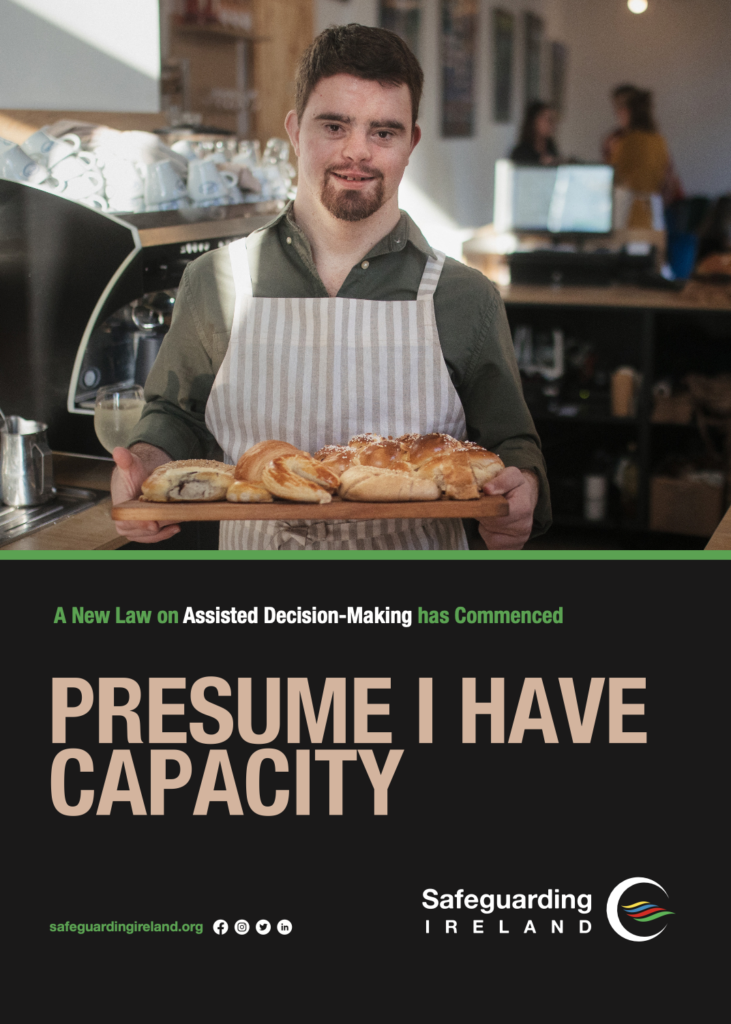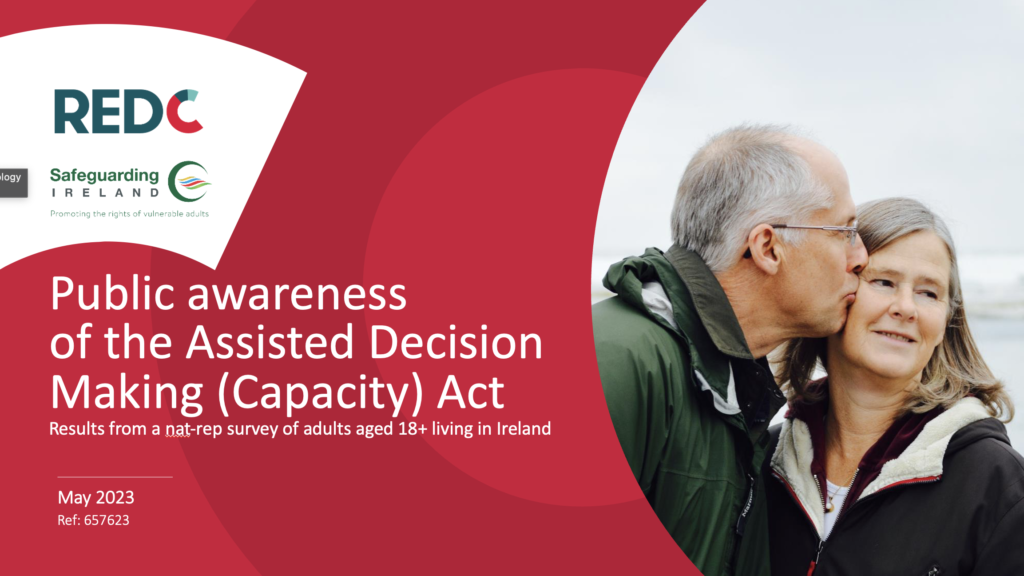The Assisted Decision-making Capacity Act
Safeguarding Ireland’s most recent Public Awareness campaign in May 2023 was about understanding and using the new Assisted Decision-making (Capacity) Act, a progressive law which supports peoples’ rights which will prevent and reduce adult abuse.
Get informed about the Act.
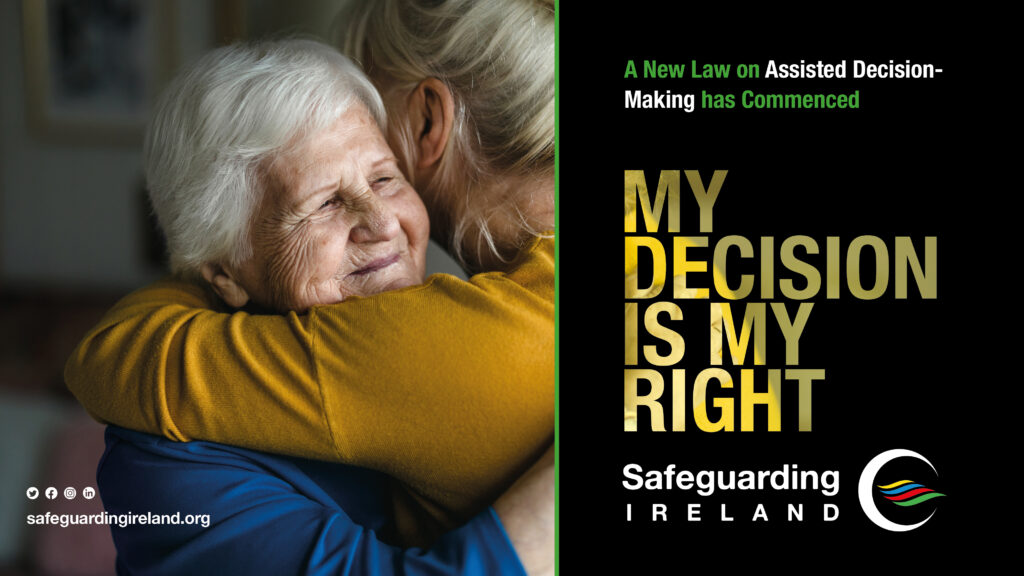
What is the Assisted Decision-making Act?
The new law, which came in effect in April 2023, is about rights, and taking every possible step to assist people to continue making their own decisions about their health, finances, housing, work or personal welfare – even if there are challenges in doing so.
The Act is of particular importance for people who have challenges with decision-making such as those living with frailty, dementia, an intellectual disability, an acquired brain injury, or mental illness. But it may be important to all of us at certain times in our lives.
More Information
A new State Agency called the Decision Support Service (DSS) is responsible for promoting public awareness, to register the new decision support arrangements, to provide oversight and to resolve issues which arise.
- Decision Support Service: 01 211 9750 / www.decisionsupportservice.ie
- HSE: www.assisteddecisionmaking.ie / 1800 700 700
- National Advocacy Service for People with Disabilities: www.advocacy.ie / 0818 073000:
- Sage Advocacy: www.sageadvocacy.ie / 01 536 7330.
The ‘lunacy’ laws are gone forever
Up until last April, the 1871 Lunacy Regulations (Ireland) Act remained the law being used. It created ‘Wards of Court’ whereby the court took charge of decisions when a person was declared of ‘unsound mind’ and people in authority decided what was in people’s ‘best interests’.
However, this is now gone forever – and all 2,000 Wards of Court cases are being reviewed.
Also included in the law is guidance for doctors, lawyers and financial providers such as banks on actions they must take to uphold the rights of all people to decision-making.
To coordinate this major change, a new State Agency called Decision Support Service (DSS) has been established and is responsible for promoting public awareness, to register the new decision support arrangements, to provide oversight and to resolve issues which arise.
Principles of the law
- To always presume that each person has the ability to make decisions about their own life
- If a person has a challenge, but with help can make their own decision, then that support must be provided
- What some may perceive as an unwise decision does not mean a person is unable to make a decision
- If a person has reduced decision-making capacity, then the Act sets out five different support arrangements which can be put in place – and have legal standing.
5 New Decision Support Arrangements
- A Decision-Making Assistant can be appointed by a person to gather and explain information and communicate a decision for them. However, the person still makes the decision. The agreement must be recorded with the DSS and certain people must be notified about it.
- A Co-Decision Maker can be appointed by a person to make decisions jointly with them. This arrangement can be used where a person feels unable to make decisions on their own. The agreement must be written down and registered with the DSS. Co-decision-makers make annual reports to the DSS about the decisions that have been taken under the agreement.
- A Decision-Making Representative can be appointed if a person is unable to make decisions, even with help. This person is appointed by the Court and can be someone trusted by the person, or from a panel maintained by the DSS. Their role is limited to the specific requirement identified by the Court and must take into account the wishes, values and beliefs of the person. It is registered with the DSS and the Representative reports to the DSS.
- When a person has decision-making capacity they may legally appoint a person to make decisions on their behalf, if in the future they are unable to do so. This is known as an appointing an Enduring Power of Attorney (EPA). An EPA includes financial, property and personal welfare decisions.
- For healthcare decisions, a person may appoint a Designated Healthcare Representative (DHR) for if in the future they no longer have decision-making capacity. In appointing a DHR, the person sets out their preferences for healthcare and treatment decisions.
Research
Radio Ad
Safeguarding rights – Assisted Decision-making.
